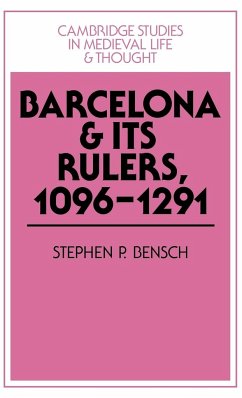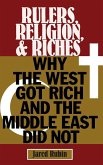This volume examines the early growth of Barcelona and the formation of its ruling classes. The city did not at first grow because of overseas trade but because of market-oriented agriculture and tribute from Islamic Spain. Only after a difficult adjustment did the city develop the commercial foundations which would later ensure its prosperity. Barcelona's patriciate rose to prominence during the second stage of growth, its rise forming part of a profound restructuring of territorial power in response to the 'feudal crisis' that challenged traditional authority throughout Catalonia. Patrician families did not model themselves after noble patrilineages, but forged marital alliances in which the wife's dowry played a fundamental role. In this new book the family structure of the patriciate receives close examination and many traditional assumptions about the nature of Mediterranean towns are challenged.
Table of contents:
Preface; Introduction; 1. The city and its region; 2. The city and its lord; 3. An aborted take-off: the urban economy in crisis, 1090-1140; 4. Urban society in transition; 5. The patriciate in gestation, 1140-1220; 6. Family structure and the devolution of property; 7. Consolidation and conflict: patrician power and Mediterranean expansion, 1220-1291; 8. Patrician continuity and family identity.
Based on extensive research this study examines the early growth of Barcelona in an effort to understand the causes of the European economic take-off. The rise, function and family structure of the city's patriciate is also examined. Many traditional assumptions about the nature of Mediterranean towns are challenged.
A study of the early growth of Barcelona and the formation of its ruling classes.
Hinweis: Dieser Artikel kann nur an eine deutsche Lieferadresse ausgeliefert werden.
Table of contents:
Preface; Introduction; 1. The city and its region; 2. The city and its lord; 3. An aborted take-off: the urban economy in crisis, 1090-1140; 4. Urban society in transition; 5. The patriciate in gestation, 1140-1220; 6. Family structure and the devolution of property; 7. Consolidation and conflict: patrician power and Mediterranean expansion, 1220-1291; 8. Patrician continuity and family identity.
Based on extensive research this study examines the early growth of Barcelona in an effort to understand the causes of the European economic take-off. The rise, function and family structure of the city's patriciate is also examined. Many traditional assumptions about the nature of Mediterranean towns are challenged.
A study of the early growth of Barcelona and the formation of its ruling classes.
Hinweis: Dieser Artikel kann nur an eine deutsche Lieferadresse ausgeliefert werden.








